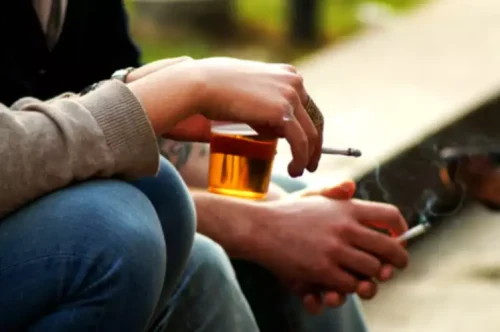
A heavy drinking binge may even cause a life-threatening coma or death. This is of particular concern when you’re taking certain medications that also depress the brain’s function. Many people with alcohol use disorder hesitate to get treatment because they don’t recognize that they have a problem. An intervention from loved ones can help some people recognize teenage alcoholism and accept that they need professional help. If you’re concerned about someone who drinks too much, ask a professional experienced in alcohol treatment for advice on how to approach that person. If your pattern of drinking results in repeated significant distress and problems functioning in your daily life, you likely have alcohol use disorder.
How can parents prevent teen’s alcohol use?
Larger prospective longitudinal studies that are currently underway will help disentangle these complex relationships (48, 78). Prevalence of current alcohol use and binge drinking in adolescents aged 15 to 19. In this data, binge drinking was defined as 60+ grams of pure alcohol (~4 standard US drinks) on at least one occasion per month (33). Caregivers need to have an open line of communication with their teens and teach them about the risks of using drugs. It’s also important to know the signs of drug use and intervene early to help teens who are at risk for or have already developed substance use disorders. A study showed that 60% of teens in a community-based substance use treatment program were also diagnosed with a mental health disorder.
Impact on your health
Youth with substance use disorders also experience higher rates of physical and mental illnesses, diminished overall health and well-being, and potential progression to addiction. If you’re concerned your teenager is struggling to cope with the pressures or worries of growing up in Britain today, it’s possible they may wrongly think drinking is a way to cope. And they might have seen adults ‘drinking to cope’ with life stresses. And at an age when appearance and self-image can feel all-important, alcohol can also result in bad skin, bad breath (due to the smell of the drink lingering on breath) and weight gain3,4 for teens – and it’s something that’s true for older drinkers too.

Adolescent alcohol effects on the human brain
Two teenagers arrested in connection with an incident in which 14 lambs died after a car was driven into a field will face no further action, police have said. — Law enforcement officers begin searching Colin and Colt Gray’s house east of Winder. At the school, officers go from classroom to classroom, first looking for more people with injuries or other shooters. Later, officers evacuate students to the football field as hundreds of parents rush to campus. “This group,” according to UPD, “was comprised of mainly juveniles, and they were consuming alcoholic beverages in a parking lot on the 800 block of Court Street.” Decide if alcohol is age-appropriate If you decide some alcohol is ok, make sure it’s within the CMOs’ guidelines and stick to the plan.
- People who are intoxicated may think they’re moving properly when they’re not.
- From regular check-ups to mental health screenings, you have the opportunity to catch potential issues early.
- In addition, teens often don’t know or understand the dangers of substance abuse.
- In the United States, 29.5 million people ages 12 and older have an alcohol use disorder.
Senior Faculty Editor, Harvard Health Publishing
Alcohol use disorder includes a level of drinking that’s sometimes called alcoholism. Vaping is attractive to teens because e-cigarettes are often flavored like fruit, candy, or mint. These products may contain nicotine or other synthetic substances that damage the brain and lungs. The teenage brain is vulnerable to the harmful effects of nicotine, including anxiety and addiction. Mental-health professionals should not minimize the approach to those who have experimented with alcohol, since infrequent use can progress to the more serious stages of alcohol use if not addressed. Therefore, professionals recommend that the youth be thoroughly educated about the effects and risks of alcohol, that fair but firm limits be set on the use of alcohol, and that the user attend brief counseling, a self-help group, and/or a family support group.

Addiction in adolescents is a complex beast, often misunderstood and underestimated. It’s a tangled web of biological, psychological, and social factors that can trap even the brightest and most promising young minds. The prevalence of teen addiction is staggering, with studies showing that nearly one in eight teenagers struggle with substance abuse or behavioral addictions. While, binge drinking does not necessarily make you an alcoholic, it is one of the primary contributing factors to teenage alcoholism. Once a high tolerance for alcohol is achieved, young drinkers can easily find themselves experiencing an alcohol use disorder (AUD), either while still underage or in their later years.
- Adverse childhood experiences (ACEs) such as abuse, neglect, or witnessing violence can leave deep scars.
- At baseline all adolescents were no/low alcohol, tobacco, cannabis and other drug use consumers.
- If you need suicide- or mental health-related crisis support, or are worried about someone else, please call or text the 988 Suicide and Crisis Lifeline or chat with Lifeline to connect with a trained crisis counselor.
- For example, there are no alcohol treatment medications that have been approved for adolescents to use.
Depending on the person, intoxication can make someone very friendly and talkative or very aggressive and angry. Reaction times are slowed dramatically — which is why people are told not to drink and drive. People who are intoxicated may think they’re moving properly when they’re not. Over-the-counter (OTC) and prescription medications can be misused more easily than others because they’re often easy for teens to obtain.
- It’s worth noting that addiction treatment for teens often looks different from adult treatment.
- Get professional help from an online addiction and mental health counselor from BetterHelp.
- And let’s face it, “recovering addict” isn’t exactly a selling point on a resume.
- You need help right now and several organizations are ready to lend a hand.
- Modern prevention programs focus on building life skills, teaching stress management techniques, and fostering emotional intelligence.
Making sure alcohol is not easily accessible can also help to avoid alcohol problems in teens. Most importantly, playing an active role in child’s life by knowing their friends, participating in healthy and fun family activities, and having conversations about https://ecosoberhouse.com/ life in general can limit the risk for teenage alcoholism. Due to inexperience with alcohol, generally lower aversion to risk, and susceptibility to peer pressure, teenagers have a substantially higher risk for binge drinking than most other age groups.

All of these factors make it important to find treatment providers who have special expertise in treating adolescents. In addition, APA designates some general factors that increase the risk of alcohol use and abuse, which apply to younger individuals. If you think your teen may not feel comfortable talking with you, perhaps guide them toward another trusted adult, such as an aunt, uncle, family friend, or community leader, with whom they have a good relationship. Recognizing AUD in teenagers isn’t always easy, but it can be the first step in offering them the support they need. Left untreated, alcohol overdose can lead to permanent brain damage or death. Evaluate whether you recognize any of the following symptoms in yourself.
